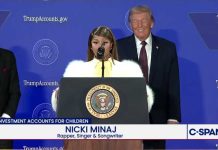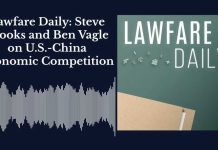
South Korea seeks exemption from U.S. tariffs, citing vital economic ties and the impact on its steel export market.
Key Takeaways
- South Korea requested an exemption from President Donald Trump’s planned tariffs, leveraging its free trade agreement with the U.S.
- Deputy Trade Minister Park Jong-won highlighted South Korea’s significant investments in the U.S. during Washington meetings.
- South Korean firms invested $21.5 billion in U.S. projects in 2023, emerging as the top global investor.
- President Trump signed an order for 25% tariffs on steel and aluminum imports, potentially expanding to other sectors.
- The Korea Development Institute lowered South Korea’s growth outlook due to these proposed tariffs.
South Korea’s Request for Exemption
South Korea has formally sought an exemption from the U.S.’s planned tariffs on steel and aluminum imports, arguing its robust economic relationship with the United States. Amid these proposed tariffs by President Trump’s administration, South Korea underlines the significance of its trade ties under the existing free trade agreement, allowing low import duties on American products.
Visiting Washington, Deputy Trade Minister Park Jong-won engaged U.S. officials to emphasize South Korea’s economic contributions, pointing to sizeable investments such as Samsung’s semiconductor factory in Texas.
Economic Contributions Highlighted
In 2023, South Korean companies invested $21.5 billion into the U.S., driven by initiatives such as the Biden administration’s CHIPS Act, which supports semiconductor manufacturing to lessen reliance on China. Park underscored that under the Seoul-Washington free trade agreement, tariffs on most items have already been eliminated, showing mutual economic cooperation.
South Korean projects, including Hyundai’s electric vehicle plant in Georgia, reflect substantial contributions to the U.S. economy, supporting their stance against the tariffs.
Implications of U.S. Tariffs
The Korea Development Institute recently reduced South Korea’s economic growth forecast from 2.0% to 1.6%, reflecting concerns over Trump’s trade measures. Steel and aluminum tariffs might not severely affect South Korea, but additional duties on semiconductors and automobiles could challenge its trade-dependent economy.
President Trump’s tariffs could exacerbate the pressure on South Korea’s steel industry, already facing oversupply and global demand challenges. U.S. tariffs may lead redirected Chinese steel imports to flood other markets.
Sources
- South Korea asks U.S. for exemption from Trump’s proposed tariffs
- South Korea requests exclusion from US plan to increase tariffs
- South Korea says asked US to exclude it from new tariffs




